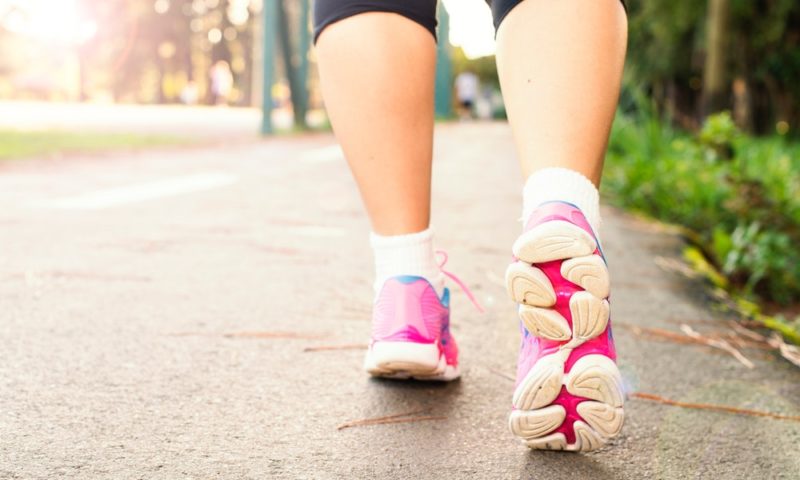Walking is a phenomenal low-impact exercise that keeps you active, releases endorphins and encourages mindfulness. But even if you walk every day, is it enough to help you lose weight and keep it off? Let’s take a closer look at this popular and timeless workout.
Walking as Exercise
First and foremost, walking counts as exercise because at its simplest definition, it is physical activity. It engages the muscles in your calves, thighs, glutes and sometimes arms. Depending on the terrain and the intensity at which you walk, it can also engage your core.
All physical activity, walking included, is important for weight control because it helps you burn calories and work off stress. Even 30 minutes of brisk walking per day can help you burn an extra 150 calories. This number is amplified by increasing duration and intensity.
A consistent routine can lead to weight-loss and maintenance if you’re not consuming more calories than you burn. While it may not be a high-impact workout, walking is great exercise for shredding additional calories and enjoying the many perks of physical activity: a better mood, greater focus, stronger muscles, stress relief, cardio-respiratory benefits and more.
Consider this While You Walk:
Try Using Small Free Weights
Hand weights from anywhere between 2-10 lbs can be a great asset on a walk. They tone your arms and add resistance to your workout, therefore increasing the number of calories burned. To start, try smaller weights for a few days and slowly add extra weight or duration over time.
Bring an Upbeat, Energizing Playlist
Music is a great workout motivator, but an upbeat song can help you pick up the pace while you walk. Build your own walking playlist and use it to keep you inspired, entertained and energized.
Try Different Terrains
For greater variety in exercise intensity, try mixing up the surfaces you walk on. Treadmills, concrete sidewalks, grassy areas, parks and forests all offer different benefits. Rougher terrains like grass and small hills or elevations will challenge you and burn additional calories.
Walk at the Beginning or End of Day
Try walking before you get ready for work or after dinner in the evening. An earlier workout can help you wake up and mentally and physically prepare for the day ahead. A later workout can help you wind down and decompress after a long, stressful and tiring day.
Pay Attention to What You’re Eating
If you’re a consistent walker, it’s great that you’re exercising regularly. However, if your plan is weight control, juxtapose your workouts with what you’re eating, too. A collection of long walks probably won’t outweigh the calories in high-fat, high-sugar and high-carb foods.
The Bottom Line:
Yes, walking can help you lose weight and keep it off. However, you must exercise consistently and monitor your eating habits too. When it comes to taking walks, don’t be afraid to step outside the box. Find new ways to challenge yourself by taking different routes, trying new terrains and boosting your intensity. You’ll notice not only physical benefits, but mental ones too!
For more on walking, CLICK HERE.






